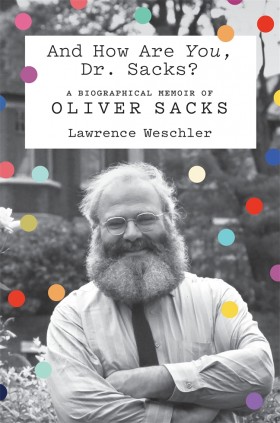And How Are You, Dr Sacks?
Lawrence Weschler began spending time with Oliver Sacks in the early 1980s, when he set out to profile the neurologist for his own new employer, The New Yorker. Almost a decade earlier, Dr. Sacks had published his masterpiece Awakenings—the account of his long-dormant patients’ miraculous but troubling return to life in a Bronx hospital ward. But the book had hardly been an immediate success, and the rumpled clinician was still largely unknown. Over the ensuing four years, the two men worked closely together until, for wracking personal reasons, Sacks asked Weschler to abandon the profile, a request to which Weschler acceded. The two remained close friends, however, across the next thirty years and then, just as Sacks was dying, he urged Weschler to take up the project once again. This book is the result of that entreaty.
Excerpt from And How Are You, Dr Sacks?
It was an odd period in his life. As I say, he’d already written what would in time (though not yet) come to be seen as his masterpiece. In the meantime, though, he’d fallen into an excruciating siege of writer’s block on the book immediately following that, an account of a leg accident of his own and its philosophically and therapeutically fraught aftermath. That terrible blockage (which actually often took the form of graphomania, as he spewed forth millions upon millions of words, just not the right words) would eventually take up almost a de cade of his life (our first four years being the final four of that siege). Sometimes, a few days after one of our dinners, I might receive a bulging envelope, featuring a dozen- paged, typed (two- finger pecked), single- spaced amplification on some of the things we’d been discussing. He was tormented by feelings of wastage and use-lessness. Indeed, he was at times floridly neurotic on all manner of themes, swinging wildly between feelings of grandiosity and of utter failure. He was pretty much a recluse out there on City Island, still as I say largely unknown, church- mouse poor, entertaining relatively few visitors (and still fewer friends), finding what surcease he could (often, in fairness, quite considerable) in his daily outings to see his patients. He and I kept up our conversations: He seemed to enjoy, by and large, dredging through his past and showing off his wards.

The above is excerpted from "And How Are You, Dr Sacks?" by Lawrence Weschler. Copyright Lawrence Weschler.



